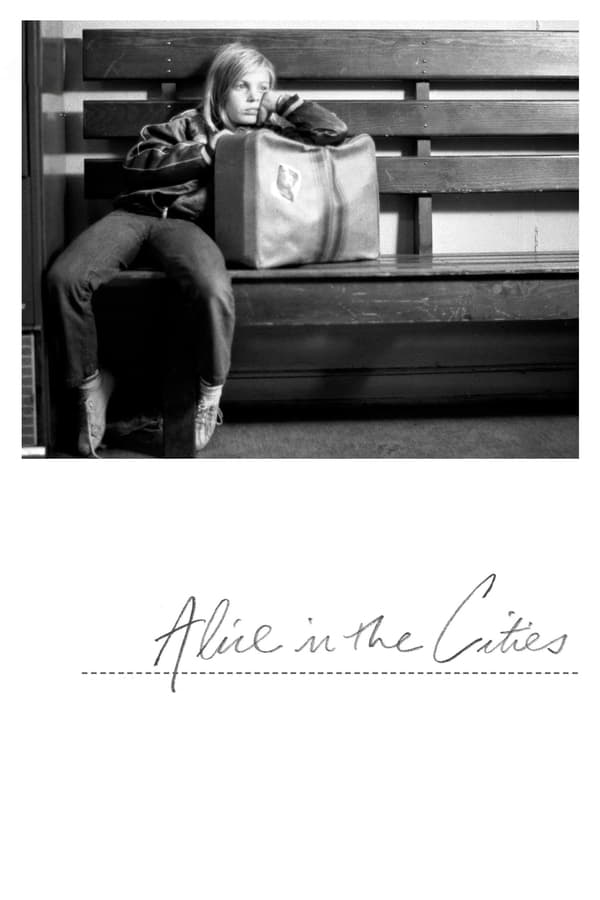
Wim Wenders is an accomplished and renowned German director, who got his start making films in West Germany during the New German Cinema movement. He’s made many narrative and documentary films (which I hope to get to one day!), but I’m starting with some of his earlier films, beginning with 1974’s Alice in the Cities. This is a “road movie” unlike any other. It follows a German writer, Philip, who’s been traveling across the USA in search of a story, but having no luck putting his finger on the story he wants to write. He’s depressed and aimless, and can’t seem to find his muse. He ends up back in New York with an irate publisher and not much money left on him, so he has to return to Germany. A strike at the airport in West Germany makes him detour to Amsterdam, and while waiting for that flight out of New York, he meets a woman and her 9-year-old daughter, Lisa and Alice. Lisa is just coming off a bad relationship and wants to return home to Germany too, but on the morning of their flight, she leaves Alice and a note for Philip asking him to take her to Amsterdam, and Lisa will meet them there after talking to her ex one more time. Philip has no choice, since Lisa is gone, and takes Alice off with him. The problem is, Lisa never shows up in Amsterdam. Alice remembers her grandmother’s home in West Germany, but can’t remember what city it is in, or even her grandmother’s name. So the unlikely duo set off in a rented car with an ever-dwindling wallet to try to find the house. Both actors are amazing in their roles: Yella Rottländer as Alice, a girl struggling with the reality that she’s not high on her mother’s priorities; and Rüdiger Vogler as Philip, a man who thinks he is seeking something special, when really he needs to find something missing within himself. It’s shot in start black and white which works so well here, and the movie is touching in the all the right moments, without being sappy or overly sentimental. It’s the rare film that is full of emotion without being emotionally charged, and it is also fun to see the picture flipped, in that you think Philip will be the star, and it ends up being Alice. ★★★★½
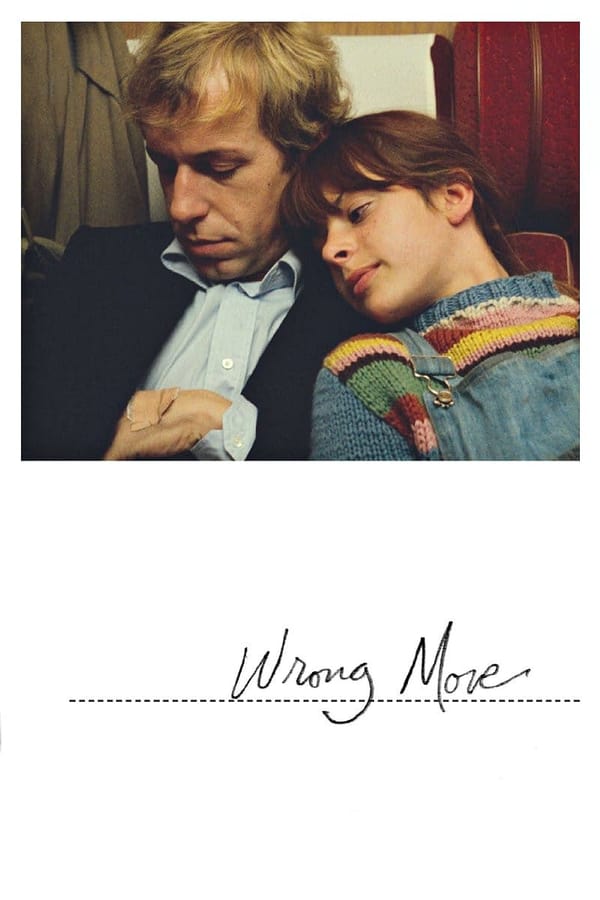
The Wrong Move takes a similar character as Philip, this time Wilhelm (portrayed by the same actor), but this time our struggling writer continues to seek isolation in all that he does. In his journey, he comes across others with secrets and idiosyncrasies: a beautiful actress, Therese (Hanna Schygulla, whom I recognized instantly from her roles in Fassbinder’s films); an old man, Laertes, with a story he doesn’t want to tell; a mute street performer, Mignon; and a socially awkward and terrible poet, Bernhard. Each person in this motley crew wants something out of someone else in the group. Therese and Mignon both love Wilhelm, but he is unwilling (or incapable) of reciprocating; Laertes wants to unburden his soul of his dark secret; Bernhard just wants someone to validate him. They hop in a car and end up at a nearly-abandoned mansion, whose owner was just about to kill himself when they pulled up. That little happy scene just about sums up the feeling of this picture. Don’t expect any happy endings. Everything and everyone is just so dreary, and ultimately, no one finds what they want. It’s all extremely depressing, and while the acting is decent, there was nothing to make me care about any of the characters. ★½
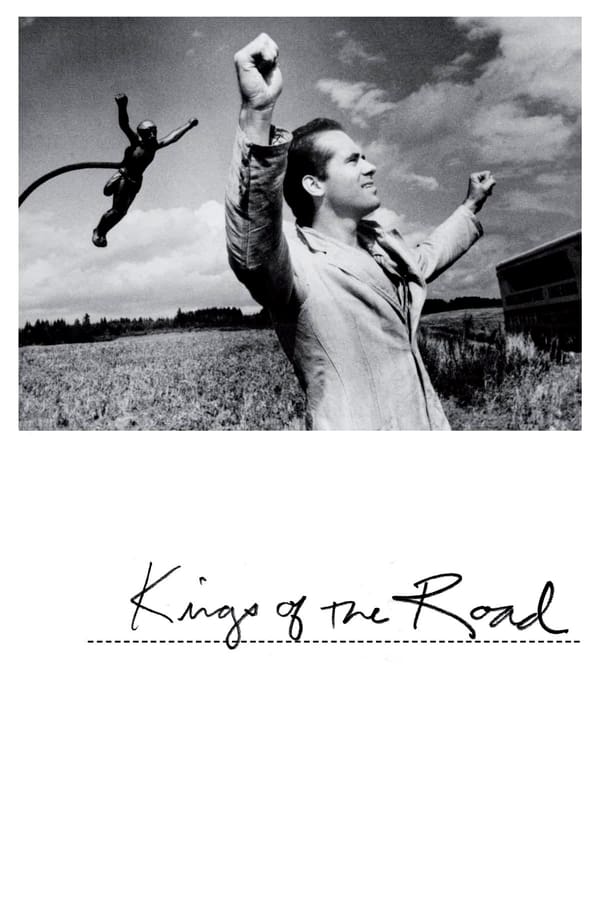
Kings of the Road is another road movie with an unlikely pair, this time a couple adult men from different backgrounds. Rüdiger Vogler returns a third time, this time playing a loner named Bruno. For a couple years, Bruno has been living out of a large truck, traveling from small town to small town, repairing and maintaining movie projectors at the local single screen cinemas, cinemas which are struggling with declining attendance as movie goers are traveling to larger cities for the experience. Bruno doesn’t seem to mind the lonely, nomadic lifestyle, but his routine is interrupted when Robert attempts suicide in front of him, by driving a car into a river. Robert walks out of the river with a wet suitcase and meets Bruno at his truck, and the two form a kinship from their solitudes. Robert tags along as Bruno visits a couple towns along the East Germany border, and the duo meet some like-minded down-and-out “lost souls” on the road. Each has a healing process to go through; for Robert it is visiting his estranged father, whom he hasn’t seen in 10 years; and for Bruno, realizing that (just maybe) there is a world of people outside of film. The movie is a bit slow to get going and honestly, felt a little pretentious in the beginning, but the visual poetry throughout is amazing. It’s a very good film depicting the alienation people can experience. ★★★½
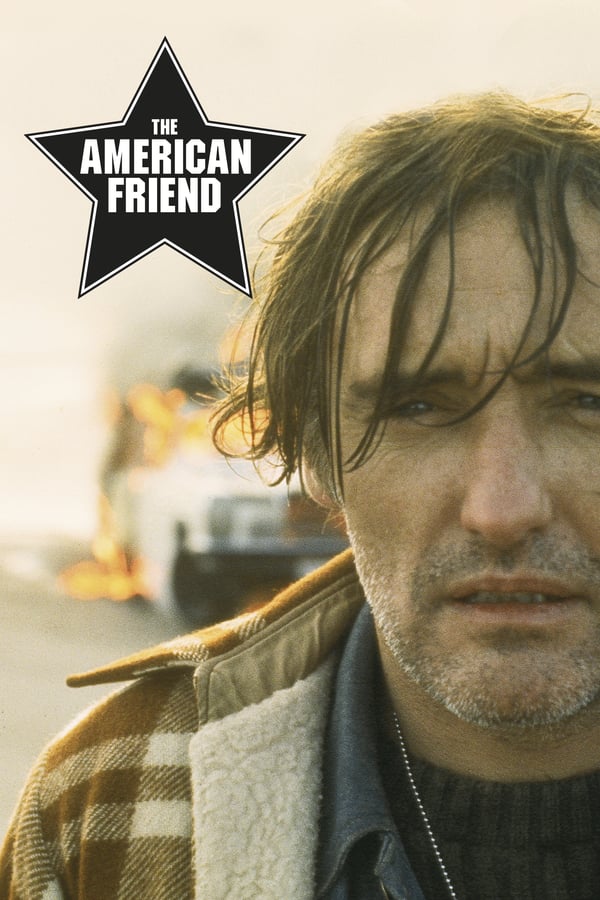
The American Friend is a tale about Tom Ripley, the same Ripley from the Purple Noon, The Talented Mr Ripley, etc. In fact, this film was the first adaptation of the novel Ripley’s Game, later redone and starring John Malkovich. In this version, Ripley is portrayed by Dennis Hopper, and he’s a rich career criminal living in Hamburg. He’s got a con going with an art forger, and is auctioning the fake pieces for big bucks. The forgery is spotted though by a local art framer, Jonathan Zimmerman. When a local French criminal, Minot, approaches Ripley about murdering a rival gangster, Ripley declines but suggests Zimmerman. Zimmerman has been fighting leukemia, and Ripley falsely tells Minot that the disease has spread and he doesn’t have long to live. Thinking Zimmerman could use a stack of case to leave his wife and son, Minot approaches him about the job. Zimmerman begrudgingly accepts, and the job goes as well as it could for an amateur killer, so Minot hires him again for a more dangerous mission. The second hit doesn’t go as swimmingly, and Ripley gets pulled into the scheme after all, to cover Zimmerman’s butt. It’s a good premise, but for my tastes, this film felt all over the place. The other film adaptations of Ripley’s escapades seem tighter and more cohesive, and Zimmerman’s leap from average man to cold killer is quite unbelievable. Honestly the whole film felt like a bit of a mess. Even though I didn’t care much for The Wrong Move, at least the wayward feel of the film worked there, and it obviously does so in the other 2 films above too. Here, in a film which relies on a tight plot and well constructed, linear paths for the characters, when that is missing, that omission is glaring. ★
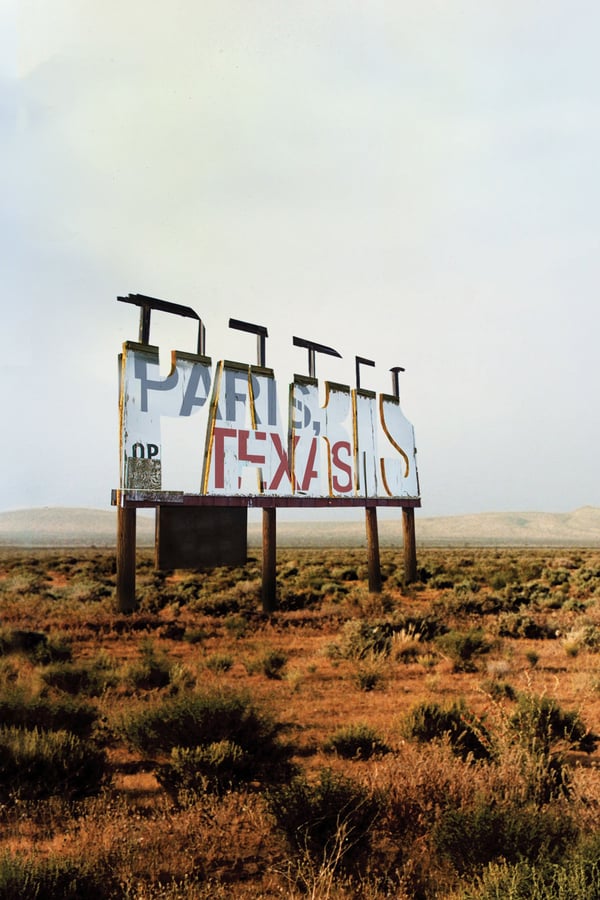
Paris, Texas is one of those amazing films that makes me reevaluate how I rate movies. I can only give this one 5 stars, so I guess I need to go back and lower my ratings on other films. It’s that good. The setting is simple on the surface, yet intricate underneath: Travis (the late great Harry Dean Stanton) is found wandering through the desert in west Texas, and he won’t speak a word to the people who find him. They call a number found in his wallet and connect with his brother Walt (Dean Stockwell), who admits that he hasn’t seen or spoken to his brother in 4 years. Walt and his wife Anne (Aurore Clément, who I just saw in Lacombe, Lucien) thought that perhaps Travis and his wife Jane were dead, as they disappeared suddenly those years ago, leaving their son behind. Walt and Anne have been raising Hunter as their own, and now Travis showing up puts a wrench in their family. But the mystery remains: where has Travis been, why is he so quiet and guarded, and whatever happened to Jane? All of the questions get answered by the end, but the plot, while great, isn’t even the best part of this film. The performances by Stanton and, later, Nastassja Kinski as Jane, are off the charts. Also, filming in the wide open spaces of rural Texas creates this feeling of a huge, enveloping world, of which we are just tiny isolated beings bumping into each other. It is a deep, emotionally taught film that slowly builds over the course of its 2.5 hours to a supremely satisfying conclusion. One of the best films I’ve seen in awhile. ★★★★★
2 thoughts on “Quick takes on 5 Wenders films”